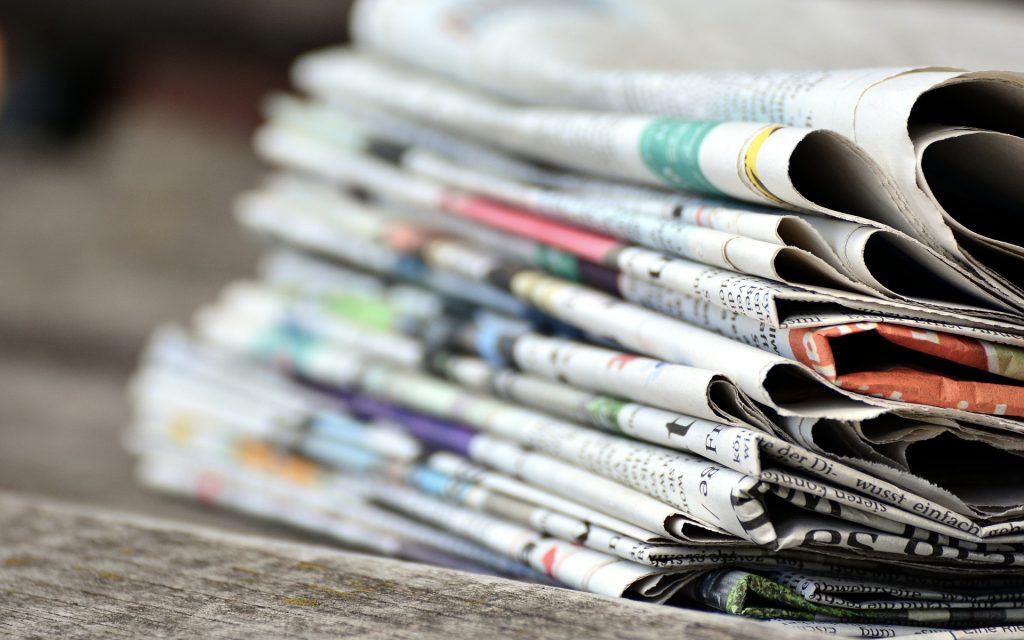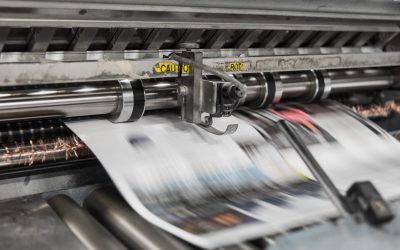 Bevan Foundation
Bevan Foundation 
Next time you find an article on a newspaper website, think twice before you share a link to it – even if there’s a tempting “share” button next to it. Why? Because you might end up paying thousands of pounds to the Newspaper Licensing Agency.
What is the Newspaper Licensing Agency?
An email from the Newspaper Licensing Agency arrived in my inbox last week, inviting me to apply for a licence to copy newspapers. I’d never heard of them and certainly don’t part with scarce Bevan Foundation cash just because someone asks. I was about to delete the email but thought I’d better check – and indeed this wasn’t yet another piece of spam but an email from a genuine, newspaper-owned company asking for payment for copying newspapers.
But we don’t copy newspapers, I thought. We have better things to do than stand by a photocopier running off last week’s Western Mail or printing duplicates of yesterday’s Daily Post. Nor do we use newspaper articles to fill our website with other people’s content – we have plenty of our own – or pass off newspaper articles as our own work in reports. My finger hovered over the delete button once again.
When copying is more than copying
But wait! It appears my understanding of “copying” is different to that of the NLA, mine being based on pre-digital schooldays. To the NLA copying is much broader than “reproducing” newspaper content. I don’t need to stand by the photocopier or printer to “copy” in NLA’s book – I only have to reproduce the link to the newspaper website. Even if I just email that link to a colleague or put it on our website, NLA says that is “copying”. Even if the link is to an article I have written, or in which I am quoted, to NLA I am “copying”. According to NLA, even forwarding a link received in a Google Alert is copying – even if you haven’t read the article – as is clicking the ‘share’ button on a newspaper website.
The idea that I am copying my own work or copying work I may not have even seen is strange enough – and it gets even stranger. In a recent court case, NLA argued that simply viewing a newspaper website amounted to copying because the reader’s computer generates a cached copy of the page. The judges at the Supreme Court saw sense and rejected this argument in their judgement, but not before two lower courts had upheld NLA’s case.
Like all charities, the Bevan Foundation has to demonstrate that it fulfils its charitable purpose, in our case of “educating and informing the public”. Being able to show that we’ve been quoted by the media is important, and because we want to substantiate our claims we reference the media coverage using its URL – we don’t copy the media article in question. To me, this is the same as providing a book’s author, title and date of publication. I certainly don’t know of any other way of citing a web page. In my view this not copying in any normal meaning of the word, and simply proves we’re not making things up. Printing the article (perhaps using the handy print button provided on the newspaper website) or reproducing it in whole is arguably copying, but that’s different to publishing a link.
If copyright of content extends to the link – not just the actual content – how can any digital work ever be referenced? How can anyone ever criticise or comment on a newspaper article as they will almost certainly want to provide a link to it or even quote from it? Newspapers appear to be trying to build an invisible digital wall around their websites – sites which are ostensibly free because they don’t have a pay wall, but which have to have a license to be read or discussed.
Reaction to NLA’s activities has been muted in general and – surprise surprise – has had no mainstream newspaper coverage (other than a Comment is Free piece in the Guardian on 17th January 2012 headlined ‘Why the Newspaper Licensing Agency is Unfair to Charities’ – note I haven’t linked to it). Charity Communications – a small charity – has questioned the NLA’s charges, arguing charities should be exempt and their case has had some coverage in Third Sector magazine (again, note no link). This is laudable but misses the bigger points about licensing.
We will be in discussion with NLA about whether we need a license. We certainly don’t have the resources to fight this seemingly bizarre system. Until this is resolved, I may well suggest to the newspapers in Wales which frequently ring me for comment or background information that they, too, should pay a fee for use of our content.
And to anyone else who dares to link to a newspaper website or pass the URL of an interesting newspaper article to a colleague the message has to be – beware before you share.
Victoria Wincker is Director of the Bevan Foundation. To enable us to publish more articles like this please make a donation or join us.



This seems very strange to me! Surely with newspapers having twitter accounts and tweeting links to their articles they are encouraging the sharing of them? If sharing newspaper article was so contrary to the business models of newspapers why does the Daily Mail and other newspapers deliberately court controversy in order to drive web traffic to their site?
I think sharing a link to an article, or quoting/paraphrasing from with a reference to the original article, should be fine! And clearly clarity on the law is required.